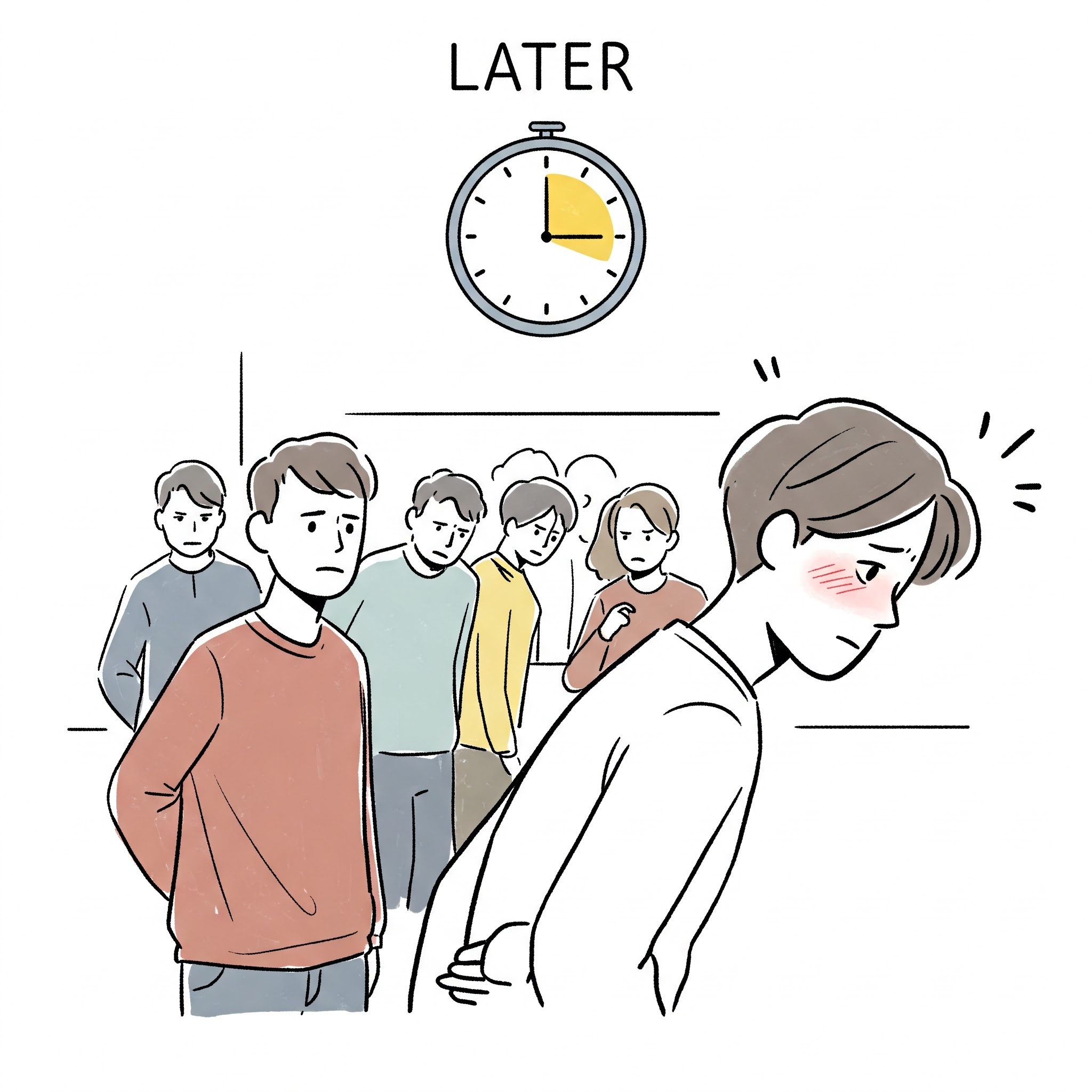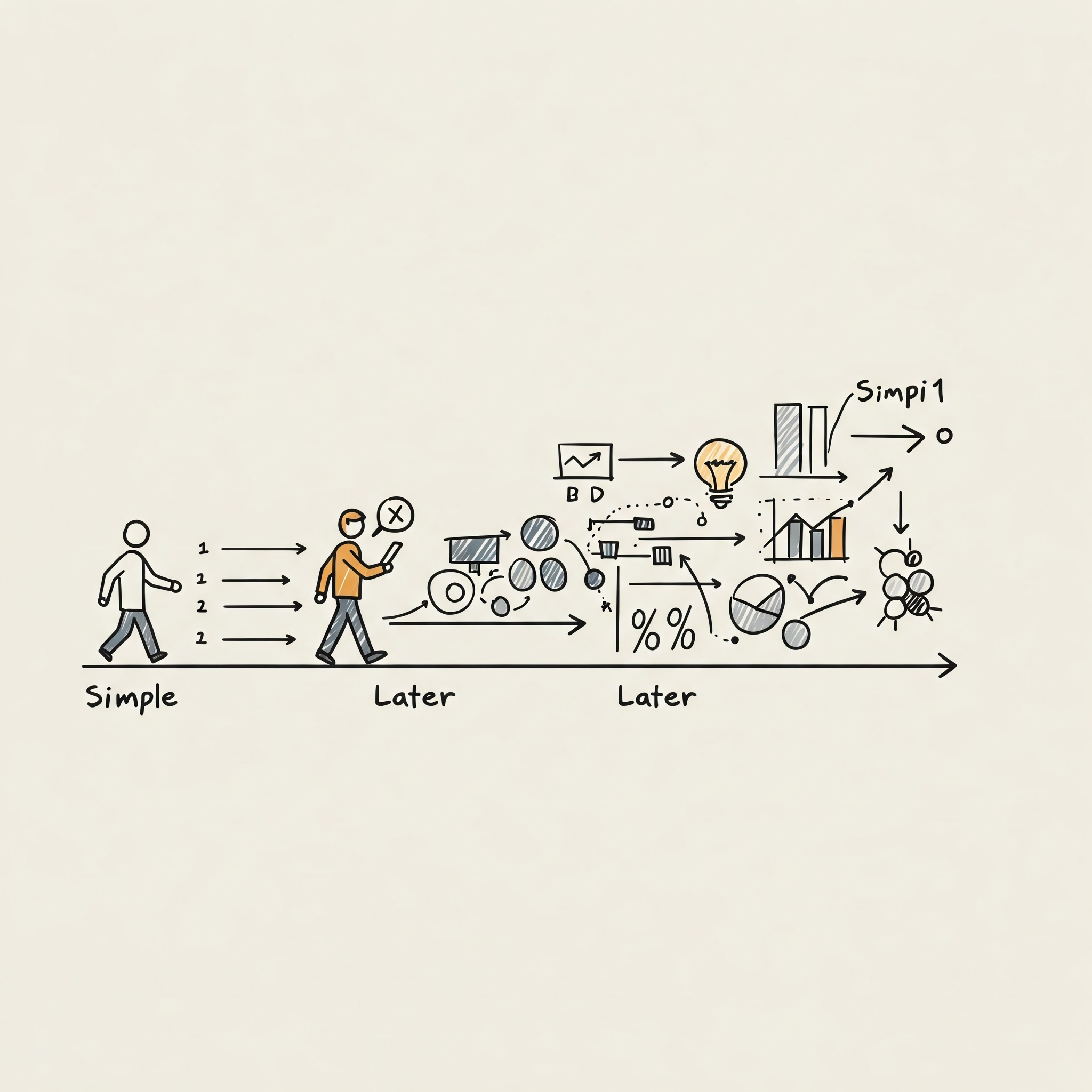Later
Definition
Later is an adverb, adjective, and informal interjection. As an adverb, it refers to a time following the present moment or a specific point in the past. As an adjective, it describes something occurring after a particular time. As an interjection, it is used informally to bid farewell.
Parts of Speech
- Adverb
- Adjective
- Interjection
Pronunciation
American English
- IPA Pronunciation: /ˈleɪ.tɚ/
- Respelling: LAY-tur
British English
- IPA Pronunciation: /ˈleɪ.tə/
- Respelling: LAY-tuh
Etymology
The word "later" originates from the Old English "lætra," meaning "slower," derived from the comparative form of "late." Over time, it evolved into its modern meanings of referring to a future time or something occurring after a specific point.
Derivatives
- Laterally (adverb, figurative usage)
- Lateness (noun)
- Latish (adjective, informal)
- Overlater (noun, rare)
- Laterness (noun)
Synonyms
- Afterward
- Subsequently
- Thereafter
Antonyms
- Earlier
- Prior
- Sooner
Usage
The term "later" is frequently used in everyday language to denote subsequent actions or times. For example, "We will talk later," or "The later chapters of the book focus on his career."
Related Terms
- Late: Occurring after the expected or usual time.
- Delay: A postponement or deferment of an event.
- Future: The time yet to come.
Detailed Definitions
Adverb
- At a time following the present moment: Refers to a point in the future.
- Example: "I will call you later tonight."
- After a specific point in time: Indicates an event occurring after a reference point.
- Example: "He arrived later than expected."
Adjective
- Occurring or existing after a specific time: Describes something taking place after a particular period.
- Example: "The later stages of the project were more complex."
Interjection
- Used informally to bid farewell: Expresses a casual goodbye.
- Example: "Later! I'll see you tomorrow."
later



🇨🇳 Mandarin (Simplified Chinese)
- 以后 (yǐhòu) - (later in time)
- IPA: /i˧˥.xou˥˩/
- Respelling: ee-hoh
- 后来 (hòulái) - (later, as in after another thing is mentioned)
- IPA: /xou˥˩.lai˧˥/
- Respelling: ho-lai
🇮🇳 Hindi
- बाद में (baad mein) - (later in time)
- IPA: /baːd meɪn/
- Respelling: baad mayn
- पश्चात् (pashchaat) - (later, as in after another thing is mentioned)
- IPA: /pəɕt͡ʃaːt/
- Respelling: puhsh-chaat
🇪🇸 Spanish
- Más tarde (más tarde) - (later in time)
- IPA: /mas ˈtaɾðe/
- Respelling: mas tarde
- Luego (luego) - (later, as in after another thing is mentioned)
- IPA: /ˈlweɣo/
- Respelling: lwe-go
🇫🇷 French
- Plus tard (plus tard) - (later in time)
- IPA: /ply taʁ/
- Respelling: plyu tar
- Après (après) - (later, as in after another thing is mentioned)
- IPA: /a.pʁɛ/
- Respelling: a-preh
🇦🇪 Modern Standard Arabic
- لاحقا (laḥeqan) - (later in time)
- IPA: /laːħeqan/
- Respelling: laa-heqan
- بعد (ba'd) - (later, as in after another thing is mentioned)
- IPA: /bʕad/
- Respelling: bad
🇧🇩 Bengali
- পরে (pore) - (later in time)
- IPA: /pore/
- Respelling: pore
- পরবর্তী (poroborti) - (later, as in after another thing is mentioned)
- IPA: /poroborti/
- Respelling: poro-borti
🇷🇺 Russian
- Позже (Pozzhe) - (later in time)
- IPA: /ˈpoʐ.ʐɪ/
- Respelling: pozh-zhe
- Затем (Zatem) - (later, as in after another thing is mentioned)
- IPA: /ˈza.tʲem/
- Respelling: za-tyem
🇵🇹 Portuguese
- Mais tarde (mais tarde) - (later in time)
- IPA: /ˈmajʃ ˈtaɾd(ɨ)/
- Respelling: maish tar-de
- Depois (depois) - (later, as in after another thing is mentioned)
- IPA: /dɨˈpoiʃ/
- Respelling: deh-poish
🇮🇩 Indonesian
- Nanti (nanti) - (later in time)
- IPA: /nanti/
- Respelling: nanti
- Setelah (setelah) - (later, as in after another thing is mentioned)
- IPA: /səˈtɛləh/
- Respelling: seh-teh-lah
🇩🇪 German
- Später (später) - (later in time)
- IPA: /ˈʃpɛː.tɐ/
- Respelling: shpe-ta
- Nach (nach) - (later, as in after another thing is mentioned)
- IPA: /nax/
- Respelling: nahk
🇯🇵 Japanese
- 後で (Atode) - (later in time)
- IPA: /a.to.de/
- Respelling: ah-to-de
- その後 (Sonogo) - (later, as in after another thing is mentioned)
- IPA: /so.no.go/
- Respelling: so-no-go
🇻🇳 Vietnamese
- Sau (sau) - (later in time)
- IPA: /ʂaw˧˩/
- Respelling: sao
- Tiếp theo (tiếp theo) - (later, as in after another thing is mentioned)
- IPA: /tjep tʰeːw˧˩/
- Respelling: tiep theo
🇰🇷 Korean
- 나중에 (najunge) - (later in time)
- IPA: /na.dʑuŋ.e/
- Respelling: na-joong-eh
- 그 후 (geu hu) - (later, as in after another thing is mentioned)
- IPA: /ɡɯ hu/
- Respelling: gu hoo
🇹🇷 Turkish
- Daha sonra (daha sonra) - (later in time)
- IPA: /daha sonɾa/
- Respelling: dah-ha son-ra
- Sonra (sonra) - (later, as in after another thing is mentioned)
- IPA: /sonɾa/
- Respelling: son-ra
🇵🇰 Urdu
- بعد میں (baad mein) - (later in time)
- IPA: /bɑːd meɪn/
- Respelling: baad mayn
- آگے (aage) - (later, as in after another thing is mentioned)
- IPA: /ɑːge/
- Respelling: aa-ge





